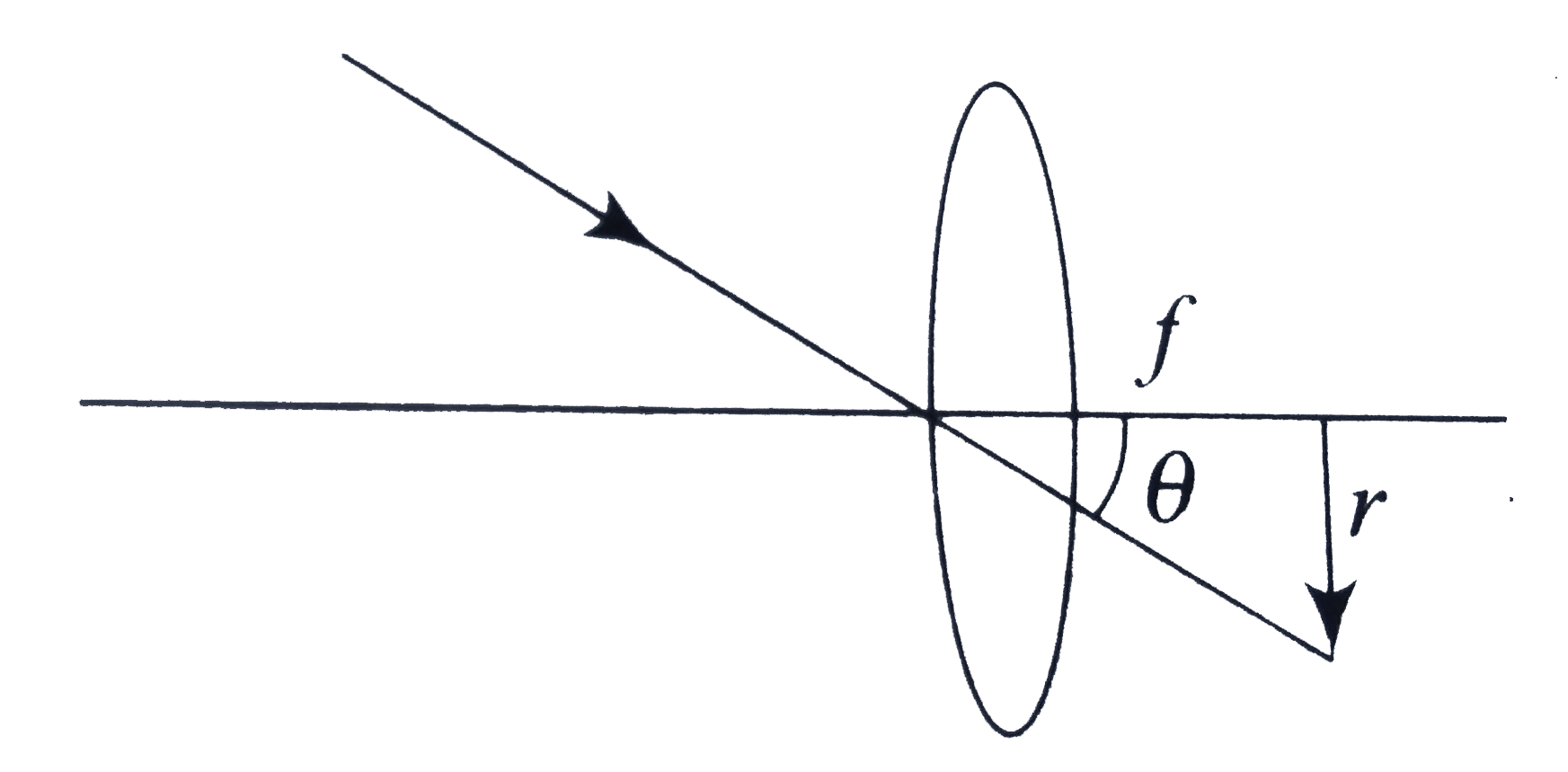A biconvex lens of focal length f forms a circular image of radius r of sun is focal plane. Then, which option is correct?
πr2∝f
πr2∝f2
If lower half part is covered by black sheet, then area of the image is equal to πr2/2
If f is double, intensity will increase
The correct Answer is:b.
r=ftanθ
or r∝f
∴πr2∝f2

Topper's Solved these Questions
- BOOK - CENGAGE PHYSICSCHAPTER - GEOMETRICAL OPTICSEXERCISE - Multiple Correct Answers Type8videos
GEOMETRICAL OPTICS
- BOOK - CENGAGE PHYSICSCHAPTER - GEOMETRICAL OPTICSEXERCISE - Assertion-Reasoninig Type2videos
GEOMETRICAL OPTICS
- BOOK - CENGAGE PHYSICSCHAPTER - GEOMETRICAL OPTICSEXERCISE - True/False5videos
GEOMETRICAL OPTICS
- BOOK - CENGAGE PHYSICSCHAPTER - FRICTIONEXERCISE - QUESTION BANK1videos
FRICTION
- BOOK - CENGAGE PHYSICSCHAPTER - GRAVITATIONEXERCISE - Question Bank39videos
GRAVITATION
Similar Questions
Rays of light from Sunn falls on a biconvex lens of focal length f an the circular image of Sun of radius r is formed on the focal plane of the lens. Then,
View SolutionA convex lens of focal length f forms an image which is 1/3 times the size of the object. Then, the distance of object from the lens is
View Solution
Knowledge Check
- Question 1 - Select One
A biconvex lens of focal length f forms a circular image of radius r of sun in focal plane . Then which option is correct
Aπr2∝fBπr2∝f2Cif lower half part is covered by black sheet , then area of the image is equal to πr2/2Dif f is doubled , intensity will increase - Question 2 - Select One
Parallel rays of light from Sun falls on a biconvex lens of focal length f and the circular image of radius r is formed on the focal plane of the lens. Then which of the following statement is correct?
AArea of image πr2 directly proportional to fBArea of image πr2 directly proportional to f2CIntensity of image increases if f is increased.DIf lower half of the lens is covered with black paper area of image will become half. - Question 3 - Select One
Rays of light from Sunn falls on a biconvex lens of focal length f an the circular image of Sun of radius r is formed on the focal plane of the lens. Then,
Aarea of image is πr2 and area is directly proportinal of fBarea of image is πr2 and area is directly proportional to t2Cintensity of image increases if f is increasesDIf lower half of the lens is covered with black paper, area will become half
A concave lens of focal length f forms an image which is n times the size of the object What is the distance of the object from the lens in terms of f and n?
View SolutionRays of light from Sun falls on a biconvex lens of focal length f and the circular image of Sun of radius r is formed on the focal plane of the lens. Then
View SolutionA convex lens of focal length f will form a magnified real image of an object if the object is placed
View SolutionA convex lens of focal length f forms an image which is 13/ times the size of the object. Then, the distance of object from the lends is
View SolutionA convex lens of focal length 'f' is placed in contact with a concave lens of the same focal length. The equivalent focal length of the combination is
View Solution

